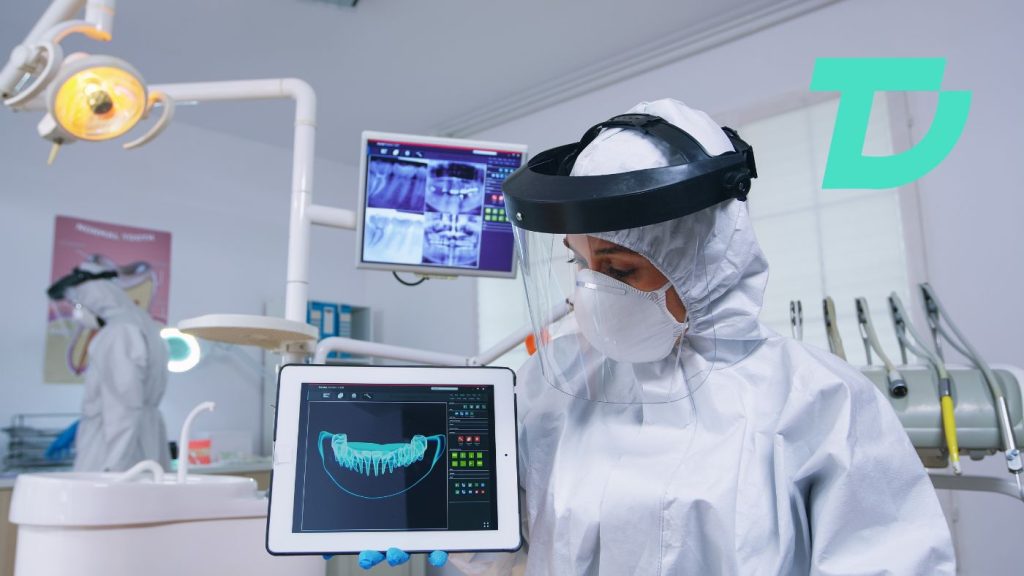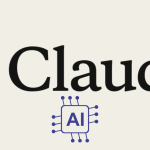Artificial Intelligence (AI) has been making waves across various industries, and dentistry is no exception. In recent years, the integration of AI in dentistry has shown immense potential to enhance patient care, streamline processes, and revolutionize the way oral healthcare is delivered.
This article explores the role of AI in dentistry, its applications, benefits, and the future it holds for both dental professionals and patients.

Understanding Artificial Intelligence
Before delving into the specific applications in dentistry, let’s understand what AI is. Artificial Intelligence refers to the development of computer systems that can perform tasks that typically require human intelligence.
These tasks include learning, problem-solving, understanding natural language, and visual perception. In dentistry, AI is harnessed to analyze complex data, assist in diagnostics, and improve treatment outcomes.
Applications of AI in Dentistry
1. Diagnostic Imaging
AI has proven to be a valuable tool in interpreting diagnostic images such as X-rays, CT scans, and MRIs. Machine learning algorithms can quickly and accurately analyze these images, helping dentists detect abnormalities, identify dental conditions, and plan treatments with greater precision.
2. Treatment Planning
AI algorithms assist dentists in creating personalized treatment plans for patients. By analyzing a patient’s medical history, oral health records, and diagnostic images, AI can recommend optimal treatment options, ensuring a tailored approach to each individual’s needs.
3. Predictive Analytics
AI enables the prediction of potential oral health issues by analyzing historical patient data. Dentists can use this information to implement preventive measures, reducing the likelihood of more severe dental problems in the future.
4. Robot-Assisted Surgery
In advanced dental procedures, AI-powered robots can assist or even perform certain aspects of surgery. This ensures precision and accuracy, leading to improved surgical outcomes and faster recovery times for patients.
5. Virtual Consultations
AI-driven virtual assistants and chatbots are increasingly being used for initial patient consultations. These tools can gather information about symptoms, provide basic oral health advice, and schedule appointments, enhancing patient engagement and accessibility to dental care.
Benefits of AI in Dentistry
1. Increased Efficiency
AI streamlines administrative tasks, allowing dental professionals to focus more on patient care. Automated appointment scheduling, data analysis, and documentation reduce the administrative burden, leading to increased efficiency in dental practices.
2. Accurate Diagnoses
AI’s ability to analyze vast amounts of data quickly and accurately aids in early detection and precise diagnosis of dental conditions. This can result in more effective treatment plans and improved patient outcomes.
3. Personalized Treatment
With AI’s ability to process individual patient data, treatment plans can be tailored to each person’s unique needs. This personalized approach enhances the effectiveness of interventions and promotes better oral health.
4. Enhanced Patient Experience
Virtual consultations, AI-driven reminders, and patient education through interactive tools contribute to an improved overall experience for patients. This can lead to better adherence to treatment plans and increased patient satisfaction.
Challenges and Considerations
While the integration of AI in dentistry holds tremendous promise, there are challenges and considerations that need attention. These include
1. Data Security and Privacy
The use of AI involves handling sensitive patient data. Ensuring robust data security measures and strict adherence to privacy regulations is crucial to maintain patient trust.
2. Training and Education
Dental professionals need adequate training to effectively utilize AI tools. Continuous education is essential to stay updated on emerging technologies and to harness the full potential of AI in oral healthcare.
3. Cost Implications
Implementing AI technologies may require significant initial investments. However, the long-term benefits, including increased efficiency and improved patient outcomes, may outweigh the initial costs.
Future Perspectives
The future of AI in dentistry is promising, with ongoing research and development bringing forth new possibilities. Some potential future developments include
1. AI in Preventive Dentistry
AI may play a crucial role in developing preventive measures to address oral health issues before they manifest. This could involve personalized oral health plans based on individual risk factors and habits.
2. Expanded Diagnostic Capabilities
As AI algorithms continue to evolve, they may become even more proficient in diagnosing a broader range of dental conditions, potentially surpassing human diagnostic accuracy.
3. Integration with Emerging Technologies
The integration of AI with other emerging technologies, such as augmented reality and virtual reality, could enhance dental education, treatment planning, and patient communication.
Conclusion
The integration of artificial intelligence in dentistry marks a significant step towards more advanced, efficient, and personalized oral healthcare. From diagnostic imaging to treatment planning and beyond, AI is transforming the dental landscape, offering numerous benefits for both dental professionals and patients.
As technology continues to advance, the future holds exciting possibilities for the intersection of AI and dentistry, promising improved patient outcomes and a more streamlined dental care experience.






